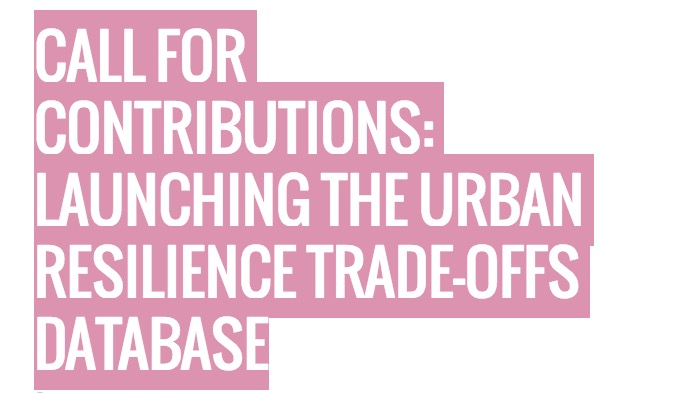
The Urban Resilience Research Network (URNet), founded by our faculty member Lorenzo Chelleri, is launching a new research project aimed at building a global database of case studies exploring urban resilience trade-offs, and it is looking for researchers to contribute case studies to this new section.
Due to the growing number of papers addressing this critical aspect of urban resilience, the URNet’s new database will feature a compilation of short posts exploring potential resilience trade-offs: actions, policies or projects that enhance the capacity to adapt to a threat, or reduce the exposure to a specific risk, but lead to a loss in other adaptive capacities or increase exposure. These trade-offs can occur across spatial scales (one community or city enhances its resilience comes at the cost of increasing the vulnerability of other places), groups (one group’s resilience increases the vulnerability of others), between threats (when a solution to e.g. drought implies increasing social fiscal pressures), or even across temporal scales (when a short-term solution results in the lock-in of a particular unsustainable trajectory).
The initiative aims to raise awareness about these unintended consequences, to better understand them, and ultimately to build a typology of these trade-offs that can help decision-makers avoid them and come up with resilience strategies that align resilience, sustainability and social justice.
If you are a researchers who would like to contribute, follow the instructions here. In addition to being featured on the website, the case studies will contribute to a global urban resilience trade-off database.
The Urban Resilience Research Network is an international research community interested in understanding, exploring and broadening multidisciplinary perspectives on urban resilience.

